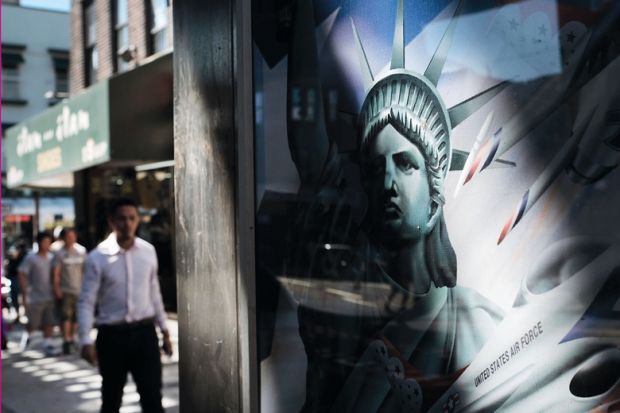US research universities are pleading for the Trump administration, as it cracks down on research relationships with foreign nationals, to make clear exactly what is and is not allowed.
Campus administrators and scientists – after months of government-led investigations, scholar bans and evictions of foreign nationals from labs – are feeling trapped by unclear or conflicting rules.
“All over the country,” healthcare pioneer Gilbert Omenn of the University of Michigan told a recent scientific gathering, “people are confused right now about the instructions to identify foreign components – people, trainees, even data, specimens, contacts, [and] co-authorships.”
The situation, said Tobin Smith, vice-president for policy at the Association for American Universities, reflected “a lack of coordination across federal intelligence, security and science agencies” in addressing security concerns in academia.
Race and ethnicity, said one Obama administration science adviser, seemed a pretty clear factor behind the legal inconsistencies. Some data-sharing actions are being “prosecuted and pursued and criminalised for some people of Chinese descent, when similar practices are not criminalised and pursued for other people,” said Kei Koizumi, now a senior adviser for science at the American Association for the Advancement of Science.
Officials from the FBI and other national security agencies have been warning US researchers for months that scientists from China and other countries are working within their labs to steal valuable scientific material. But major grant-awarding science agencies such as the National Institutes of Health and the National Science Foundation, when asked by universities, have not been able to say what exactly is allowed, said Professor Omenn, a professor of internal medicine, human genetics and public health at Michigan.
“They sort of throw up their hands and say, ‘We’re waiting for clarification’,” Professor Omenn, a former president of the American Association for the Advancement of Science and a White House science adviser in the Carter administration, told the AAAS-led science policy session.
The current chief White House science adviser, Kelvin Droegemeier, told the same gathering that he was taking the blame for the disorder on behalf of the Trump administration and promising to quickly fix it.
The Trump administration took until February – more than halfway through its term in office – to get Professor Droegemeier installed to lead the White House Office of Science and Technology Policy.
“Every [university] president I’ve met with, it’s the top line concern,” Professor Droegemeier said, citing the need for clearer policy concerning foreign nationals and university research. “We have not had an active involvement there because there wasn’t a director – that’s the only reason.”
In that absence of such coordination, the NIH has written to dozens of universities asking them to scrutinise the behaviour of foreign nationals on their campuses. That led at least one institution, the University of Texas MD Anderson Cancer Center, to expel three scientists from Asian backgrounds.
The NSF has not acknowledged taking any similar actions. Some of the cases at MD Anderson reportedly involved scientists who shared some information from NIH grant applications with colleagues in China. Such sharing is not allowed, although it is understood to occur regularly among US scientists who serve on grant review panels and informally discussed their work with US colleagues.
Mr Koizumi said that he served on such grant review panels and knew not to share the contents of grant applications with colleagues outside those panels. Yet he was less aware of any associated penalties and had not heard of them being applied to Americans.
“All these policies are enforced unevenly, and that's a problem,” he said. “I definitely worry about that, because of course there’s a racial angle to this.”
Register to continue
Why register?
- Registration is free and only takes a moment
- Once registered, you can read 3 articles a month
- Sign up for our newsletter
Subscribe
Or subscribe for unlimited access to:
- Unlimited access to news, views, insights & reviews
- Digital editions
- Digital access to THE’s university and college rankings analysis
Already registered or a current subscriber? Login








